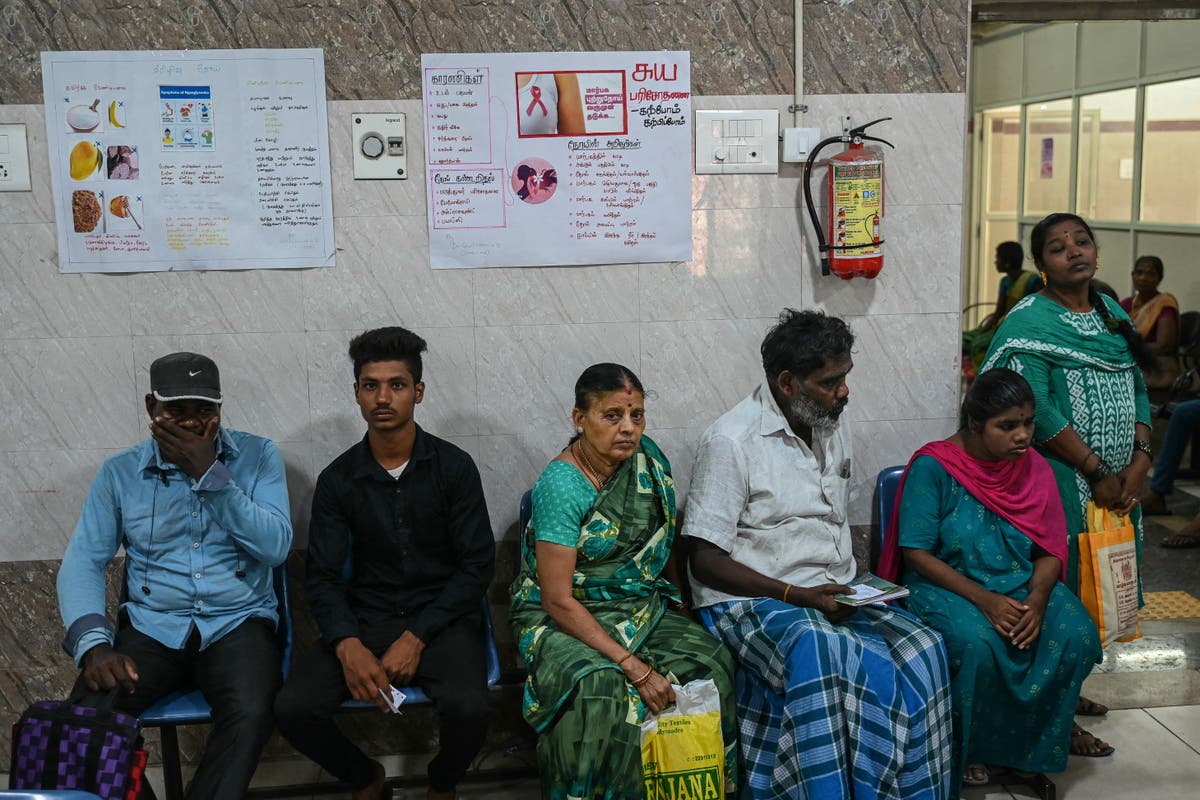Doctors in India began a nationwide strike on Saturday in protest against the brutal rape and murder of a trainee medic at a hospital in the eastern state of West Bengal.
The doctor, a member of staff at the RG Kar Medical College in Kolkata, had settled down for a nap in a lecture hall after working nearly 20 hours of a 36-hour shift when she was assaulted, her colleagues say. She was found dead last Friday and police have confirmed that the 31-year-old was raped and murdered.
A police volunteer working at the hospital has been detained in connection with the crime, but the victim’s family alleges more people were involved.
The Indian Medical Association (IMA), the country’s largest union representing doctors and medical workers, called for a nationwide strike halting non-emergency medical services for 24 hours starting Saturday morning.
“Subsequent to the brutal crime in R G Kar Medical College Kolkata and the hooliganism unleashed on the protesting students, IMA declares nationwide withdrawal of services by doctors of modern medicine from 6am on Saturday to 6am Sunday for 24 hours,” the medical organisation said in a statement, adding that “all essential services will be maintained”.
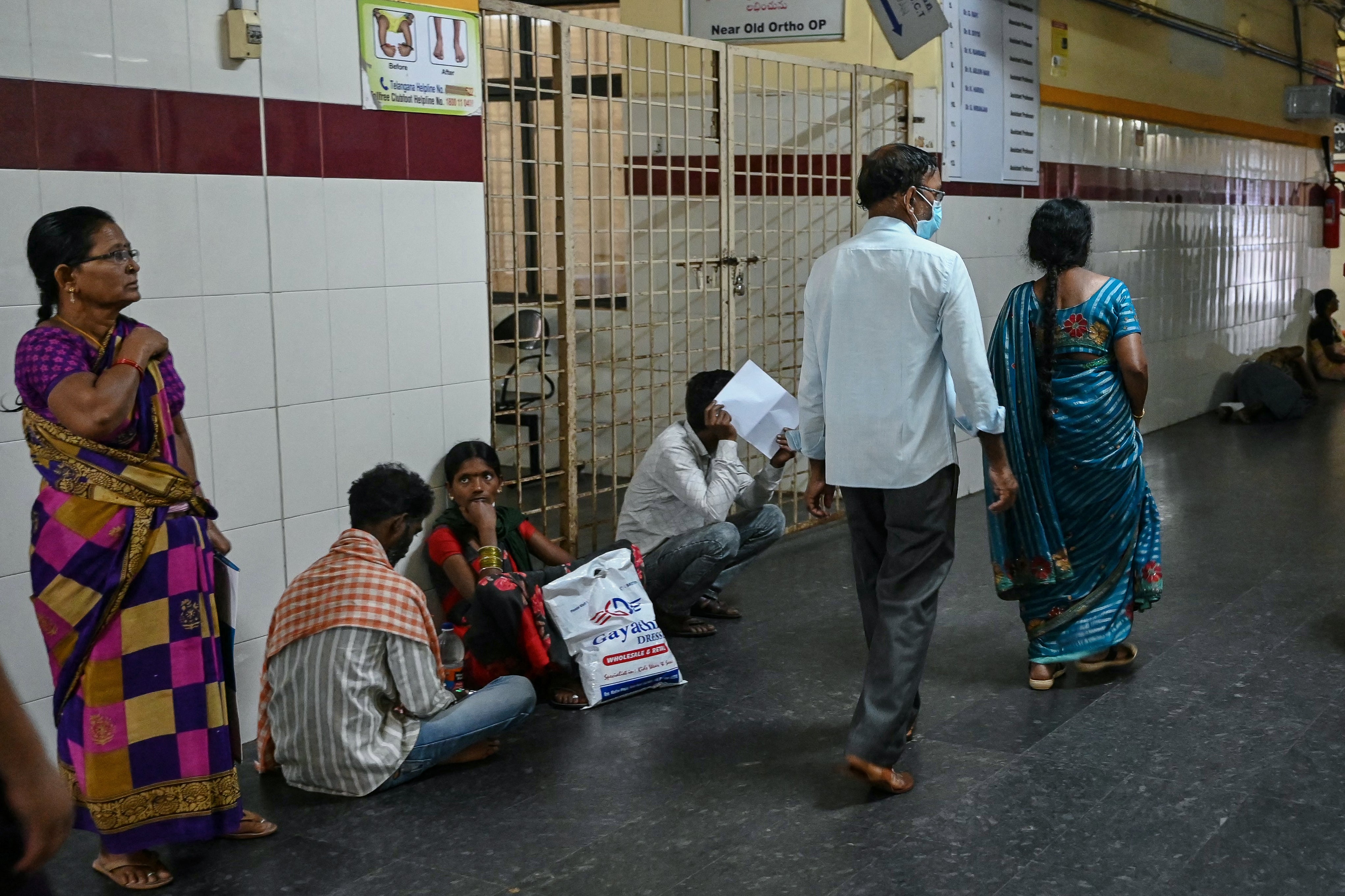
The IMA called on the public to support its “struggle for justice”, and called the murder a “crime of barbaric scale due to the lack of safe spaces for women”.
“Junior doctors have all been on strike, so this would mean 90 per cent of doctors are on strike,” an IMA representative in the southern state of Telangana told Reuters.
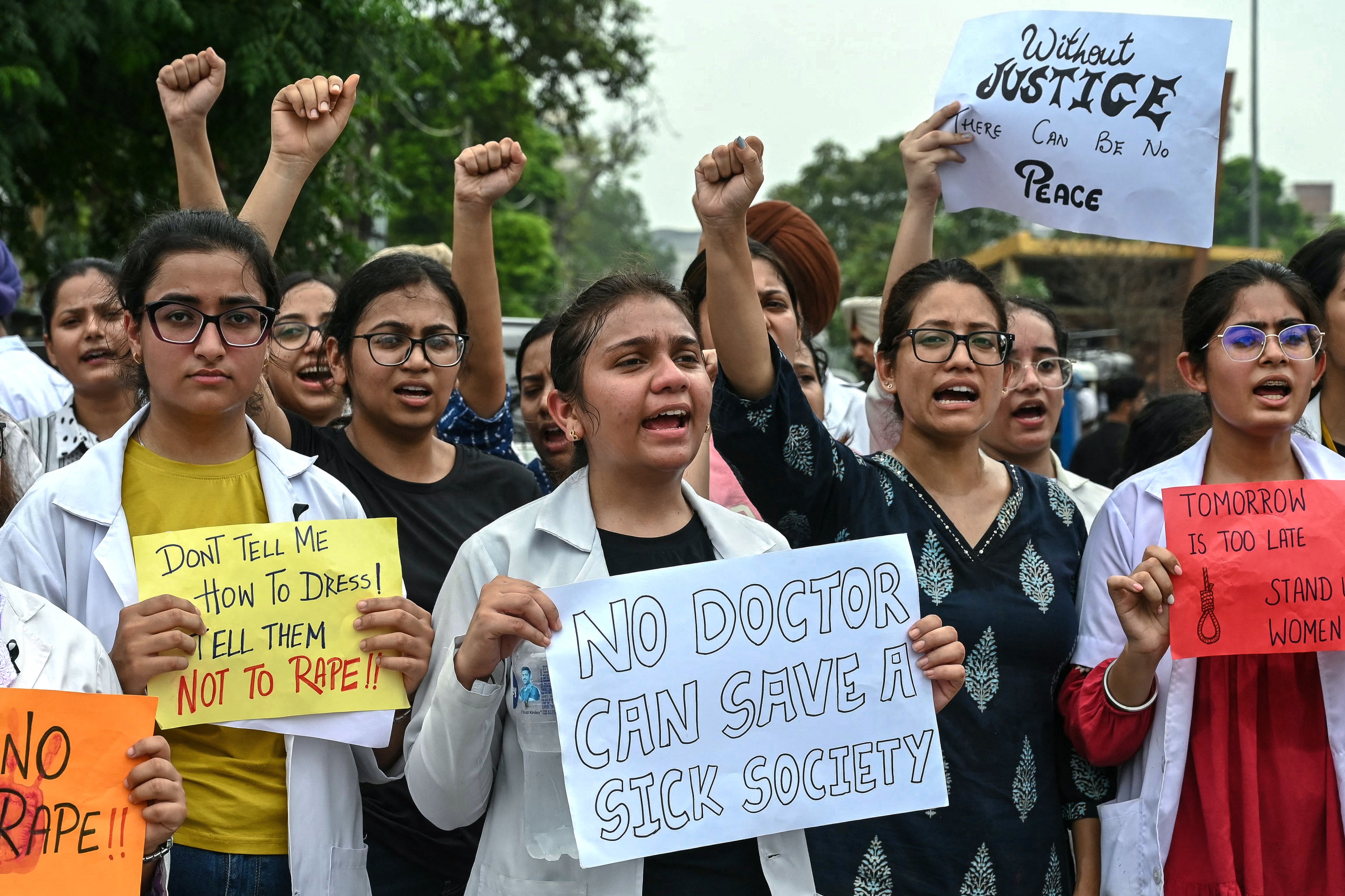
The suspension of work has affected patients all across India, with the walkout of around a million doctors making it the largest in the country in over a decade.
“I have brought my ailing grandmother. They did not see her today. I will have to wait for another day,” said Raghunath Sahu, who was in a queue of patients at the SCB Medical College and Hospital in the eastern city of Cuttack.
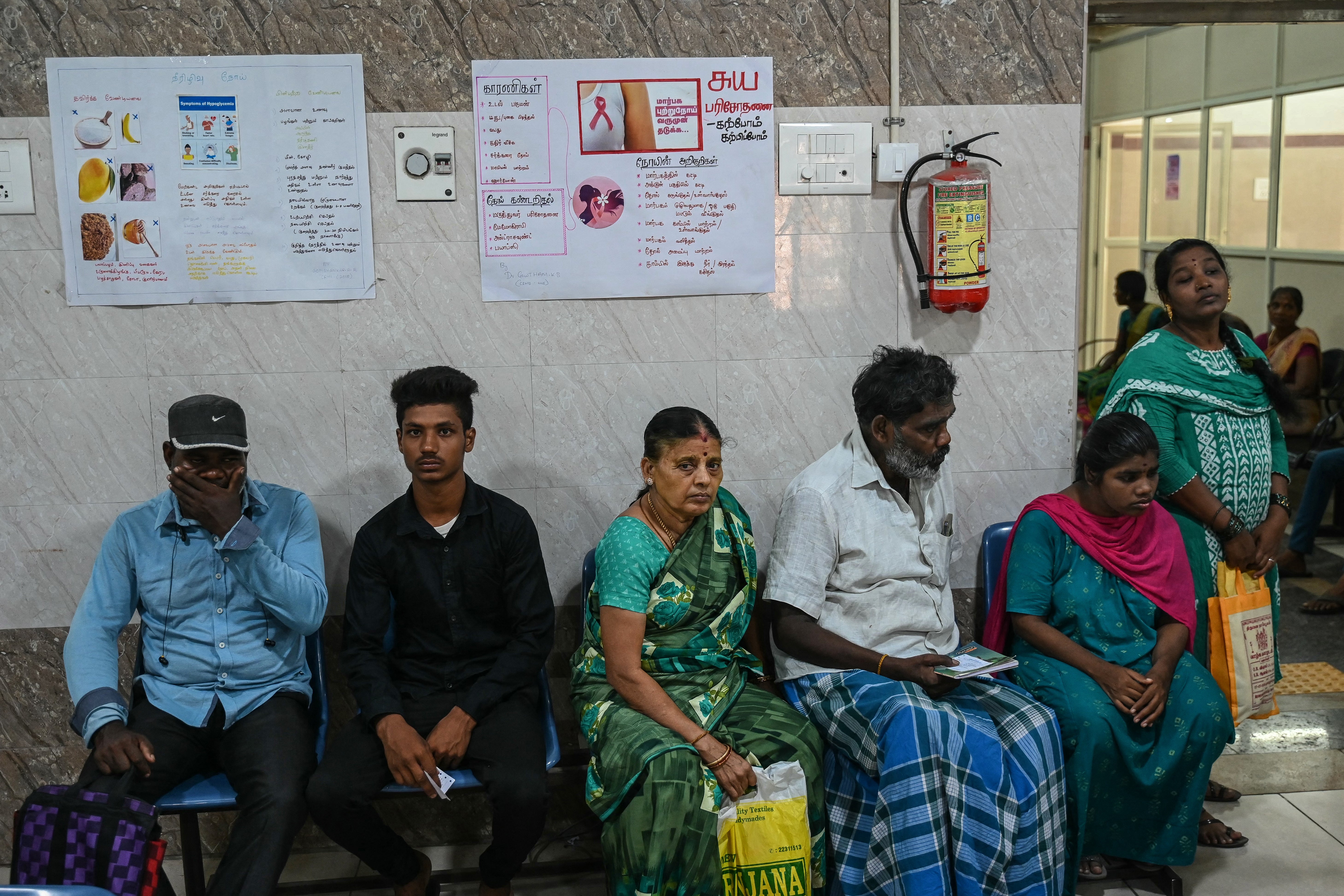
Striking doctors and medical workers are demanding justice for the victim and a guarantee of safety inside medical campuses, including making any attack on on-duty medics an offence without the possibility of bail.
The British Medical Association (BMA) said it stood in solidarity with doctors in Kolkata and across India and called for urgent measures to improve the safety of female doctors in the workplace.
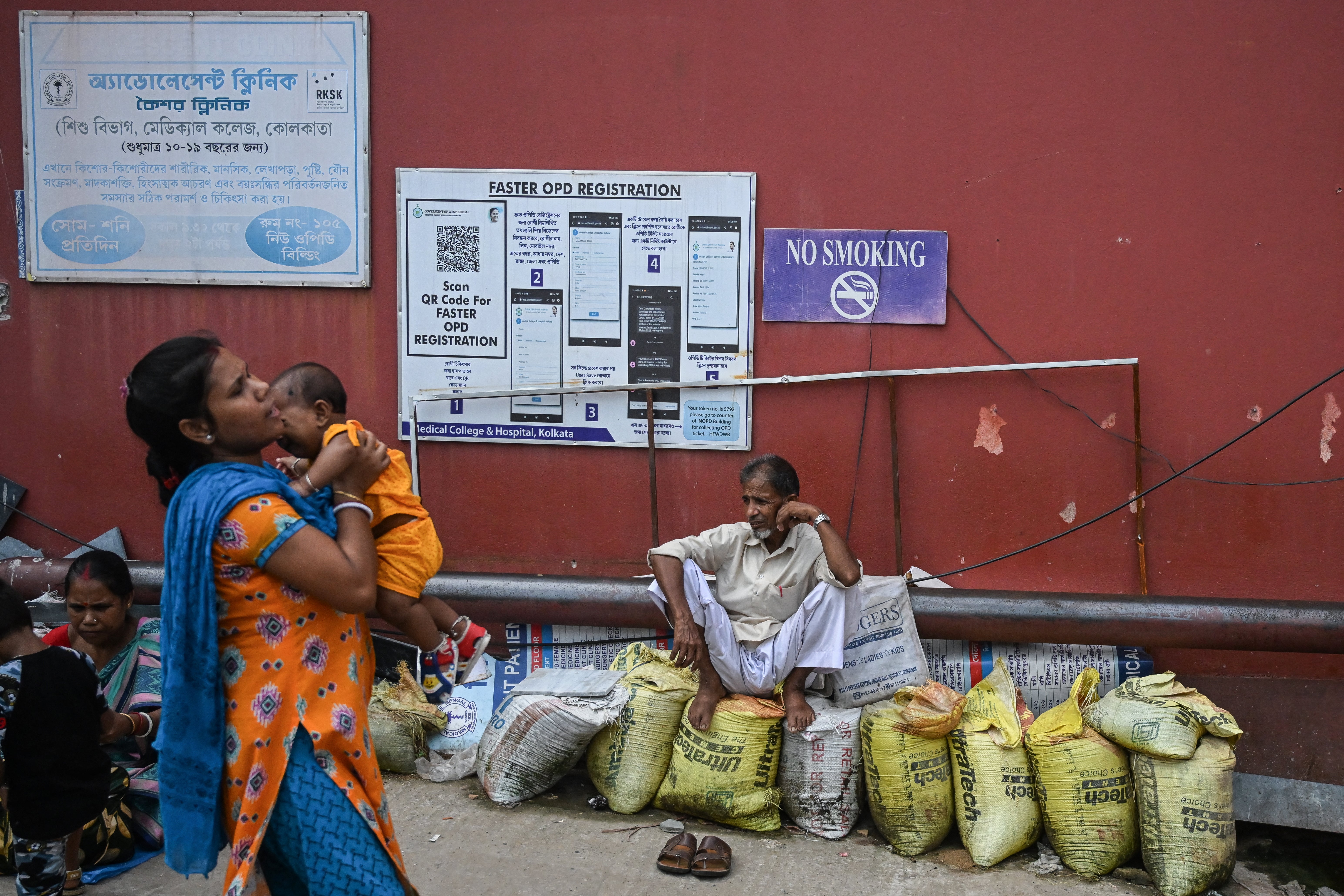
“The BMA is horrified by the rape and murder of a woman junior doctor in the hospital where she worked in Kolkata, India… This should never be a risk that any doctor ever faces in their place of work,” the BMA posted on X.
Earlier this week hundreds of thousands of women marched to chants of “reclaim the night” across several cities in India.
The nationwide demonstrations by doctors and women’s groups are fuelled by anger at the failure to impose tough laws to deter the rising tide of violence against women.
“The punishment should be the harshest possible, should come faster, so within public memory,” said senior criminal layer Shobha Gupta, who represented a Muslim woman raped during religious riots in Gujarat in 2002.
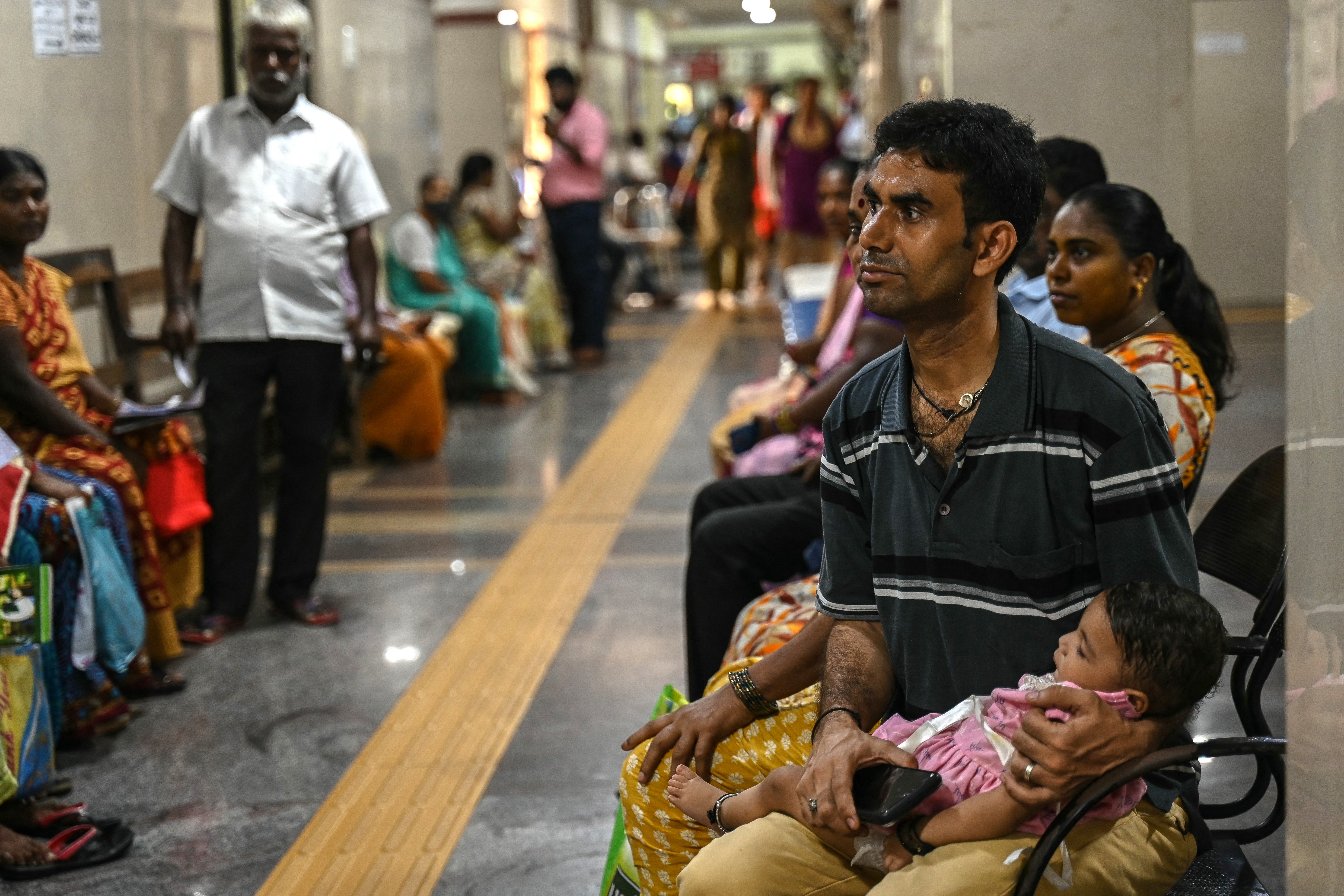
“When we are still angry about the crime, the result should come out. Punishment to play a role of deterrence, it should come faster,” Ms Gupta said.
India’s federal Central Bureau of Investigation (CBI), which has taken over the investigation of the crime in Kolkata, has summoned several students from the RG Kar college and also questioned the hospital’s principal as it seeks to determine the circumstances surrounding the doctor’s murder.
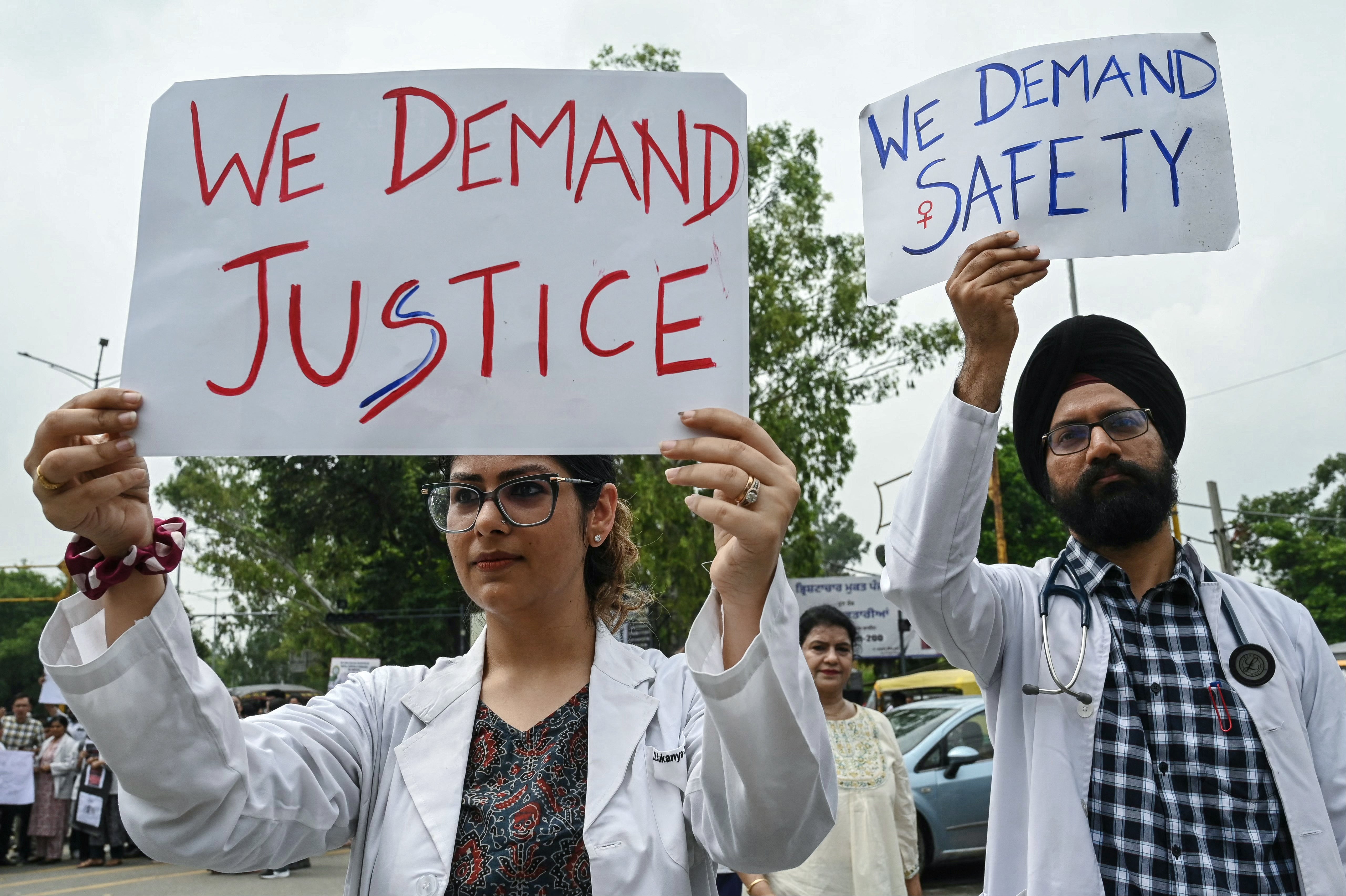
The country’s health ministry has promised to form a committee on doctor safety, as it called on the striking medical workers to return to work.

